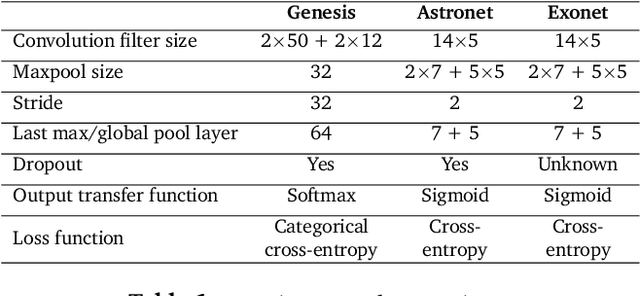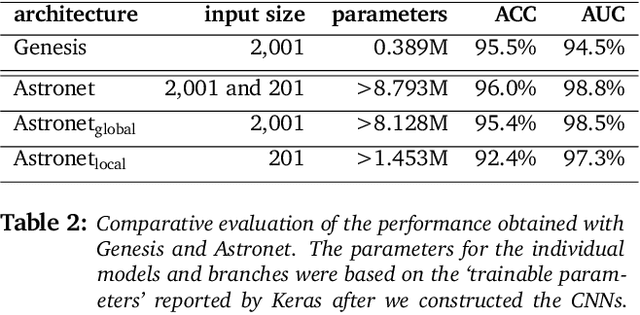Koko Visser
A one-armed CNN for exoplanet detection from light curves
May 12, 2021



Abstract:We propose Genesis, a one-armed simplified Convolutional Neural Network (CNN)for exoplanet detection, and compare it to the more complex, two-armed CNN called Astronet. Furthermore, we examine how Monte Carlo cross-validation affects the estimation of the exoplanet detection performance. Finally, we increase the input resolution twofold to assess its effect on performance. The experiments reveal that (i)the reduced complexity of Genesis, i.e., a more than 95% reduction in the number of free parameters, incurs a small performance cost of about 0.5% compared to Astronet, (ii) Monte Carlo cross-validation provides a more realistic performance estimate that is almost 0.7% below the original estimate, and (iii) the twofold increase in input resolution decreases the average performance by about 0.5%. We conclude by arguing that further exploration of shallower CNN architectures may be beneficial in order to improve the generalizability of CNN-based exoplanet detection across surveys.
 Add to Chrome
Add to Chrome Add to Firefox
Add to Firefox Add to Edge
Add to Edge